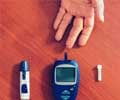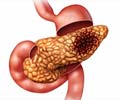Severe and recurrent neonatal hypoglycemia may be linked to impaired executive and visual-motor functions at four and a half years, with otherwise normal intelligence.
- Neonatal hypoglycemia or blood glucose is quite common in the neonatal transition period, affecting around 15 percent of babies and is a preventable cause of brain damage.
- Neonatal hypoglycemia might lead to permanent neurodevelopmental effects in early childhood at around four and a half years finds a prospective study.
- Further studies necessary to determine whether threshold glucose levels for diagnosis and intervention need to be re-evaluated to ensure optimal outcome of these children.
Neonatal hypoglycemia is a fairly common occurrence and more importantly is a preventable cause of brain damage in infancy.
It is diagnosed clinically by performing a heel-prick blood test and if glucose levels are found to be low (less than 47 mg/dl), the baby is given dextrose gel till normal levels are restored. In fact, this treatment was pioneered by Prof. Harding and her team in 2013.
Currently there is no internationally accepted value for neonatal blood glucose level that is considered unsafe to necessitate immediate intervention. Values vary from less than <2.6 mmol/L (most commonly used and followed in this study), but authorities from other countries have recommended cut-offs as low as 1.4 mmol/L and as high as 3.3 mmol/L.
The team therefore embarked on this study to assess the risk of neurodevelopmental defects associated with neonatal hypoglycemia in this prospective cohort study and to determine whether current criteria for diagnosis of neonatal hypoglycemia have to be revisited and standardized to achieve better outcomes for these babies.
- The Children With Hypoglycemia and Their Later Development (CHYLD) Study is a prospective cohort study conducted among moderate to late preterm and term infants born at risk of hypoglycemia.
- It was done at a regional perinatal center in Hamilton, New Zealand between the months of December 2006 to November 2010. Follow-up periods were from September 2011 to June 2015.
- The study included 614 neonates born from 32 weeks’ gestation with at least 1 risk factor for hypoglycemia, including preterm, small, large, diabetic mother, or acute illness.
- Whole blood and masked interstitial glucose concentrations were estimated for up to 7 days after birth.
- Neonatal hypoglycemia is defined as at least 1 consecutive blood glucose level of less than 47 mg/dL, a severe episode with levels <36 mg/dL, and recurrent episodes were said to occur if there were three or more instances. Interstitial hypoglycemia was defined as an interstitial glucose concentration less than 47 mg/dL for at least 10 minutes.
- Neonates with hypoglycemia (blood glucose concentration <47 mg/dL) were treated to maintain blood glucose concentration at a minimum 47 mg/dL.
- Cognitive function, executive function, motor function and visual function were then assessed at 4 ½ years.
- Overall, 477 of 604 eligible children (79.0%) were assessed. Their mean age at the time of assessment was 4.5 years, and 228 (47.8%) were females.
- Infants exposed to neonatal hypoglycemia (280 [58.7%]) did not have an increased risk of neurosensory impairment.
- However, neonatal hypoglycemia was associated with higher risk of low executive function and visual motor function with the greatest risk in children exposed to severe, recurrent, including clinically undetected (interstitial episodes only)
- hypoglycemia.
Says Professor Harding. “At two years there was no relationship between blood sugar levels and later brain development, but at age 4.5 years, it’s clear that the children who experienced low blood sugar levels were more likely to have specific difficulties.”
Scope of The Study and Future Plans
- The current study raises serious doubts that neonatal hypoglycemic episodes could indeed cause problems at school, with some of the episodes not detected clinically.
- The team plans to enlarge upon the current study and conduct further tests at 9-10 years of age to see if these children have significant math and reading difficulties and behavioral problems.
- Moreover, if treated infants also show neurodevelopmental impairments, this raises the possibility of brain damage being already present even before dextrose treatment was given.
Reference:
- Nataliia Burakevych, PhD1; Arijit Chakraborty, PhD1,4; J. Geoffrey Chase, PhD5; Gregory D. Gamble, MSc1; Deborah L. Harris, Robert J. Jacobs, Yannan Jiang, Nabin Paudel, Ryan J. San Diego, Benjamin Thompson, Trecia A. Wouldes, Jane E. Harding. Association of Neonatal Glycemia With Neurodevelopmental Outcomes at 4.5 Years. JAMA Pediatrics (2017). doi:10.1001/jamapediatrics.2017.1579













